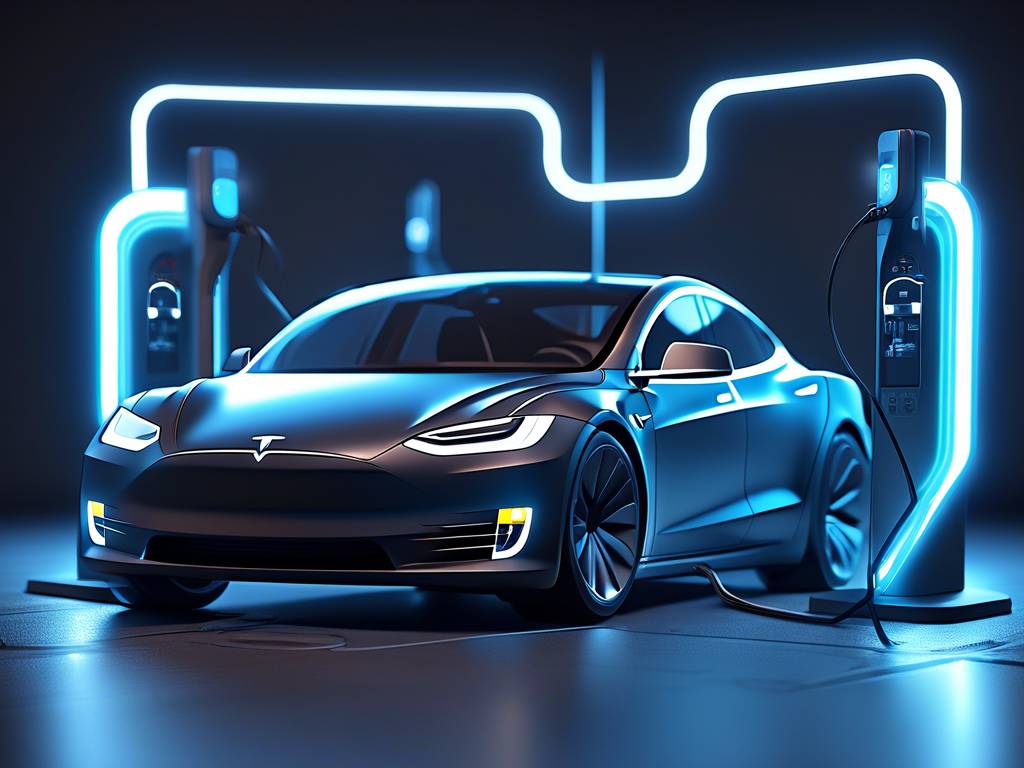Breaking News: CATL Develops Faster Charging Batteries for Tesla
In a recent interview with Bloomberg, Robin Zhang, the chairman of Chinese battery giant CATL, revealed that the company is working on faster charging batteries for Tesla. As Elon Musk’s automaker strives to protect its market share and introduce an affordable car below $25,000, CATL’s efforts to enhance battery technology are crucial. The collaboration between CATL and Tesla has garnered attention and criticism from Republican lawmakers, adding a new layer of complexity to the situation.
Let’s delve deeper into the implications of CATL’s fast-charging cells for Tesla with insights from Greg Craig, Bloomberg’s editor covering Global Autos.
Seattle’s Role in the EV Industry
Seattle has emerged as a critical player in the EV industry, especially in the context of CATL’s collaboration with Tesla and Ford’s plans to license technology in Michigan. Despite facing political scrutiny and accusations of being a potential threat to U.S. interests, Seattle remains a key hub for innovation and advancement in battery technology. Here are some key insights on Seattle’s significance in the EV landscape:
* **Boogeyman Perception**: Seattle is often viewed with suspicion in Washington due to its association with foreign companies like CATL. This perception stems from concerns about maintaining U.S. control over technology and manufacturing processes.
* *Foreign Collaboration*: CATL’s partnership with Tesla and potentially Ford raises questions about the extent of foreign influence in the EV sector and the implications for U.S. competitiveness.
* **Elon Musk’s Connection**: The close relationship between CATL’s chairman and Tesla’s Elon Musk highlights the intertwined nature of global EV supply chains. While Ford’s ties to Seattle have faced backlash, Tesla’s deep involvement with the city underscores the complexities of international partnerships.
* *Gigafactories**: Tesla’s presence in China further complicates the landscape, as the company operates gigafactories in multiple countries. Balancing partnerships and maintaining strategic autonomy are key considerations for Tesla.
* **Battery Sourcing**: Contrary to popular belief, Tesla has historically relied on suppliers like Panasonic and CATL for battery production. While Tesla is gradually moving towards in-house battery manufacturing, its dependence on external suppliers, particularly in Seattle and China, remains significant.
* *Importance of Seattle Plant*: Seattle’s role as an export center for Tesla underscores the city’s importance in the global EV market. The ability to scale production and meet demand hinges on seamless collaboration between Tesla and its battery partners.
Political Challenges and Industry Outlook
The political landscape surrounding EVs is rapidly evolving, with increasing scrutiny on foreign collaborations and supply chain dependencies. As the U.S. gears up for election season, the debate over the impact of EV adoption on domestic industries and national security is likely to intensify. Here are some key considerations:
* **Legislative Skepticism**: Lawmakers in the U.S. are closely monitoring projects like CATL’s technology licensing to Ford in Michigan. The potential for regulatory pushback and heightened scrutiny underscores the need for transparency and strategic planning in the EV sector.
* *Election Dynamics*: With high-profile companies like Tesla and CATL attracting attention, politicians are seizing the opportunity to critique foreign partnerships and trade practices. The politicization of EVs raises questions about the balance between innovation, national interests, and global cooperation.
* **Supply Chain Concerns**: The dominance of Chinese companies in the EV supply chain has sparked debates about the implications for U.S. economic sovereignty and technological self-reliance. Balancing the benefits of international collaboration with safeguarding national interests is a delicate tightrope for policymakers.
* *Strategic Partnerships*: Navigating the complex web of global partnerships in the EV industry requires proactive engagement with diverse stakeholders. Encouraging innovation while mitigating risks associated with foreign dependencies is crucial for sustainable growth in the sector.
Hot Take: Embracing Innovation for a Sustainable Future
As CATL and Tesla push the boundaries of battery technology and charging capabilities, the evolution of the EV industry holds promise for a greener, more efficient transportation landscape. While challenges abound in navigating geopolitical tensions and regulatory hurdles, the imperative to accelerate the transition to electric mobility remains paramount. Embracing innovation, fostering collaboration, and addressing societal concerns are essential steps towards building a sustainable future for the EV ecosystem.
Althea Burnett stands as a luminary seamlessly blending the roles of crypto analyst, relentless researcher, and editorial virtuoso into an intricate tapestry of insight. Amidst the dynamic realm of digital currencies, Althea’s insights resonate like finely tuned notes, reaching minds across diverse horizons. Her ability to decipher intricate threads of crypto intricacies harmonizes seamlessly with her editorial finesse, transforming complexity into an eloquent symphony of understanding.

